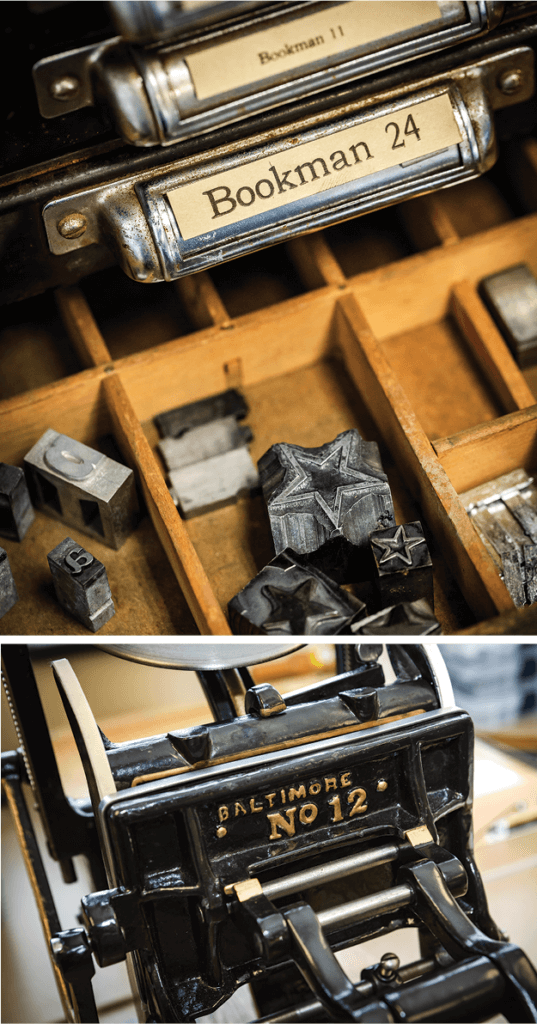- May 14, 2019
- By Sala Levin ’10
Pages of an old book with strategically placed cutouts so that the remaining words create a new narrative. Books printed on handmade paper. Texts illustrated with LEDs that light up like a constellation in the night sky.

These are some of the types of books Professors Matthew Kirschenbaum and Kari Kraus are enabling students to create through BookLab, a printing press-meets-makerspace in Tawes Hall. Opened by the English department in Fall 2018, BookLab gives students the tools to experiment with a wide range of bookmaking techniques.
“We’re interested in pressing our understanding of what a book is by looking at its mutable form historically and thinking about what else it might be,” Kraus says.
In one corner of BookLab stands an old-school screw press, ready for a bookmaker to choose from dozens of traditional metal fonts to create something custom-embossed. Sensors, circuitry, heat- and water-sensitive inks, and other high-tech accoutrements are also available, as are scores of existing experimental books for reference and inspiration.
Students who take the one-semester BookLab course learn about the history of the book while producing their own avant-garde texts. MFA students may take the course to create prose- or poetry-filled booklets (known as chapbooks), while computer science or engineering students with an interest in design may gravitate toward something with a tech-driven flair.
It’s a departure from the classic idea of what English courses are, says Kirschenbaum. “It’s not just talking and writing about books. It’s about expanding our range of critical and creative work, where thinking and interpretation come from doing the actual things” that making a book requires.
For Courtney Coppage, a doctoral candidate in comparative literature, the BookLab course represented “a whole new vocabulary, a whole new skill.” Coppage created a book with the idea that it would be handed from person to person, leaving blank space in the front and back for readers to jot down thoughts for future readers and hand-binding the pages using a style in which the pages are sewn together.
Kraus and Kirschenbaum hope BookLab can reflect the evolving but still critical cultural place books hold, even as ebooks and Kindles become ever more ubiquitous. “The book is one of our most iconic cultural objects, and we’re just fascinated by its long and varied and storied history and the worlds it opens up,” says Kraus.
